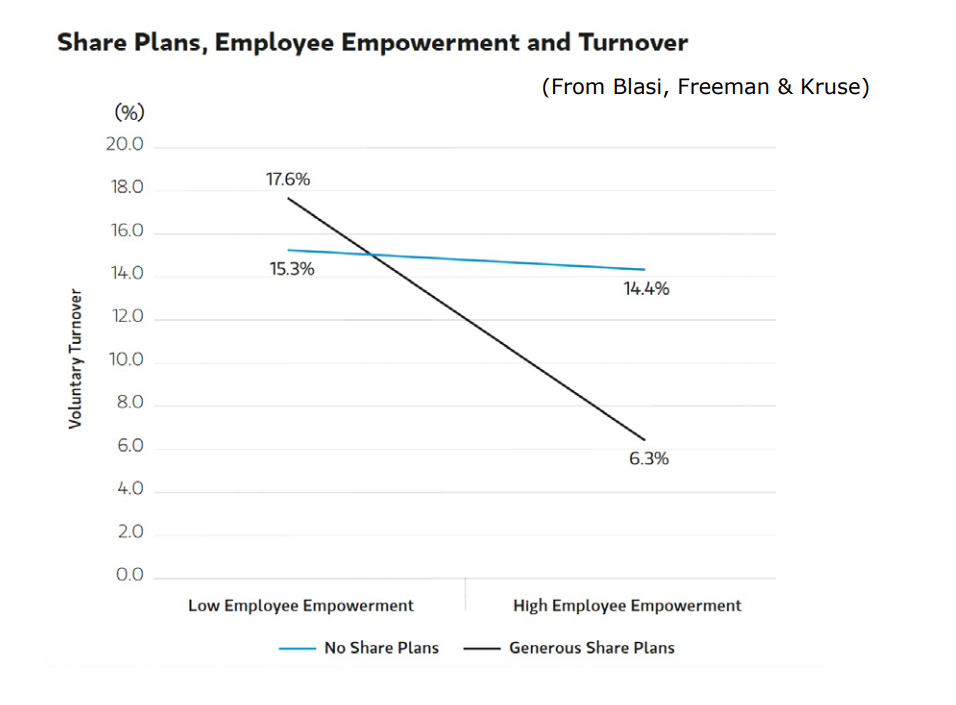A full range of innovative solutions
Everything you need to manage your equity plans, smarter
As HR and Reward professionals you're used to a challenge, and COVID-19 is certainly providing just that. While the familiar challenges of resource, time and budget remain, you likely have new, less familiar tests to contend with too, such as keeping remote employees safe, motivated and engaged.
The subject of this blog is probably less than familiar too. What is this snappily-named ‘instrumental satisfaction model’? How does it relate to share plans? And in the midst of these challenging times, what can we learn from it that might help drive better outcomes?
At Computershare, we've always believed that employee share plans are a great way to drive employee engagement. We have chaired and contributed to numerous webinars and panel discussions around this topic over the years. In our most recent look at this topic, we invited Professor James Hayton, Professor in Human Resources Management & Entrepreneurship at Warwick Business School in the UK, to share the current thinking on the link between employee engagement, retention and share plans.
First, let us explain the concept of a ‘satisfaction model’. Don’t worry, we’ll be brief: whilst ‘satisfaction’ is itself an intangible concept (i.e. in itself it cannot be seen), researchers have developed theoretical models to help explain the underlying factors that impact an individual’s sense of satisfaction. It is these factors that drive behaviours that are tangible and therefore can be witnessed and measured in some way.
Share plans, and their impact on engagement and retention have traditionally been explained via three satisfaction models:
The theory here is that owning company shares creates a sense of identity within the company and a feeling of being part of the company. The greater your slice, the higher your commitment to the company and therefore the less likely you are to leave. This, in turn, could translate into higher employee engagement. However, this model is now thought to be overly simplistic and hasn’t stood the test of time.
If you are given monetary rewards via a share plan and you are satisfied with the reward, the more fulfilled you feel and the less likely you are to leave. This is a better held argument. People have a fundamental need for money, whether or not they like where they work. And pay satisfaction is a strong argument to retain an employee. But people don’t go to work just to earn money or to feel a part of something. Whilst these are both important, these models both miss an increasingly important point which is where we introduce our third model.
The key to this concept is empowerment. Some share plans give employees the opportunity to participate in the life of the business through shareholder rights. An empowering organisational culture can give employees a stronger sense of participation in decisions that influence their work life, further driving satisfaction. While all three satisfaction models have a role to play, it is the instrumental satisfaction model which provides the rationale for organisations to look more holistically at their employee engagement programmes.
Giving people stock or any form of employee ownership gives an opportunity to participate in the life of the firm.
Prof. James Hayton, Warwick Business School
Employee empowerment, such as information sharing or participation in decision making, is often thought to increase engagement and enhance retention on its own. However, one large scale study by Blasi, Freeman and Kruse has shown that voluntary employee turnover is much more significantly reduced when employee empowerment programmes are coupled with employee share ownership.

The findings are illustrated in the graph:
This is the instrumental satisfaction model in action.
Share plans will appeal to people through all three satisfaction models with varying levels depending on the individual. Understanding the instrumental satisfaction model shows why organisational culture and employee empowerment is increasingly important and why organisations that combine strong cultures with employee share ownership reap significant rewards through increased staff retention.
With potentially many of your employees now working from home, many could be feeling disconnected from their teams and the wider organisation. From what we've learned about instrumental satisfaction, the organisations that will thrive during this COVID-19 era will be the ones that find ways to empower employees, to consult and involve them in decision making, to find ways to remain collaborative, and that protect and strengthen their sense of organisational culture. Your share plan, critically the way you communicate about it, is a powerful and impactful tool in your strategy too.
If you don't operate a share plan today or you are looking to switch providers, we're here to help.
With over 35 years' expertise in managing share plans on a global scale, our team of expert people can help you unlock all the benefits of an effective employee share plan, without losing focus on your day job.
Our share plan platform is easy to use and the most accessible on the market, enabling your participants to manage their shares hassle-free.
We listen to your objectives so we can work as your partner to create the right plan for you and your participants.
Whether you choose one of our off-the-shelf suites or award-winning bespoke designs, we'll tailor your communications to drive employee participation.
Our knowledgeable, trusted experts are on hand to support you, share industry best practices and help you get the most out of your share plan.
Everything you need to manage your equity plans, smarter
Boost plan participation and interaction
Power all your employee share plans in one place
Foster a culture of employee ownership